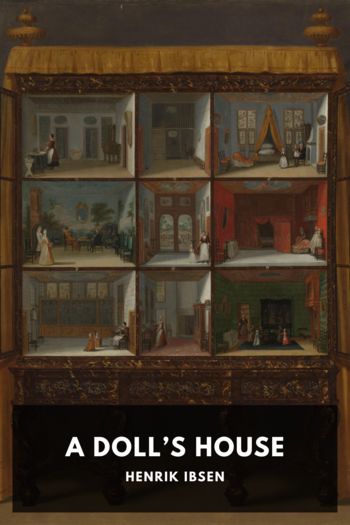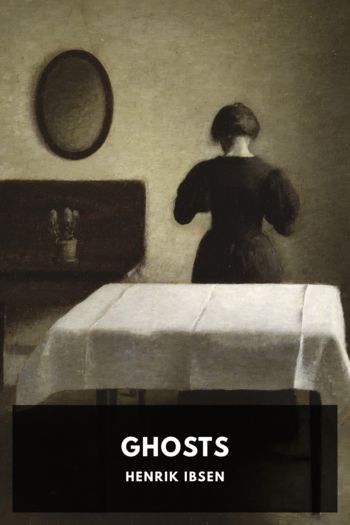A Doll’s House by Henrik Ibsen (ebook reader color screen txt) 📕

Description
In 1870s Norway, Nora Helmer struggles to be her own person within her marriage and a society that limits the opportunities of women. When decisions made to protect her husband come back to haunt her, Nora must fight for her family and for her own place in the world.
Since its first theatrical run, in which every performance was sold out, A Doll’s House has inspired admiration, controversy, and discussion. First published by Ibsen in 1879 in Danish, the official language of Danish-ruled Norway, A Doll’s House sold out its first two printings within months. It first premiered at the Royal Theatre in Copenhagen within a month of publication, and the play was performed in Germany in 1880 and London in 1884.
Initial translations changed the play, particularly the ending, to be more sympathetic and acceptable. Ibsen considered these changes to be a “barbaric outrage.” It wouldn’t be until 1889 that the play was performed as written in London and Broadway.
Ibsen’s work pioneered realistic depictions of middle class families and social themes. He claimed that he didn’t have feminist intentions in the writing of A Doll’s House, instead aiming for “the description of humanity,” but the play is widely considered an essential feminist work and has had a real lasting impact: as recently as 2006, it was the most performed play in the world.
Read free book «A Doll’s House by Henrik Ibsen (ebook reader color screen txt) 📕» - read online or download for free at americanlibrarybooks.com
- Author: Henrik Ibsen
Read book online «A Doll’s House by Henrik Ibsen (ebook reader color screen txt) 📕». Author - Henrik Ibsen
The Christmas tree is in the corner by the piano, stripped of its ornaments and with burnt-down candle-ends on its dishevelled branches. Nora’s cloak and hat are lying on the sofa.
Nora’s is alone in the room, walking about uneasily. She stops by the sofa and takes up her cloak. Nora Drops her cloak. Someone is coming now! Goes to the door and listens. No—it is no one. Of course, no one will come today, Christmas Day—nor tomorrow either. But, perhaps—Opens the door and looks out. No, nothing in the letterbox; it is quite empty. Comes forward. What rubbish! of course he can’t be in earnest about it. Such a thing couldn’t happen; it is impossible—I have three little children. Enter the Nurse from the room on the left, carrying a big cardboard box. Nurse At last I have found the box with the fancy dress. Nora Thanks; put it on the table. Nurse Doing so. But it is very much in want of mending. Nora I should like to tear it into a hundred thousand pieces. Nurse What an idea! It can easily be put in order—just a little patience. Nora Yes, I will go and get Mrs. Linde to come and help me with it. Nurse What, out again? In this horrible weather? You will catch cold, ma’am, and make yourself ill. Nora Well, worse than that might happen. How are the children? Nurse The poor little souls are playing with their Christmas presents, but— Nora Do they ask much for me? Nurse You see, they are so accustomed to have their mamma with them. Nora Yes, but, nurse, I shall not be able to be so much with them now as I was before. Nurse Oh well, young children easily get accustomed to anything. Nora Do you think so? Do you think they would forget their mother if she went away altogether? Nurse Good heavens!—went away altogether? Nora Nurse, I want you to tell me something I have often wondered about—how could you have the heart to put your own child out among strangers? Nurse I was obliged to, if I wanted to be little Nora’s nurse. Nora Yes, but how could you be willing to do it? Nurse What, when I was going to get such a good place by it? A poor girl who has got into trouble should be glad to. Besides, that wicked man didn’t do a single thing for me. Nora But I suppose your daughter has quite forgotten you. Nurse No, indeed she hasn’t. She wrote to me when she was confirmed, and when she was married. Nora Putting her arms round her neck. Dear old Anne, you were a good mother to me when I was little. Nurse Little Nora, poor dear, had no other mother but me. Nora And if my little ones had no other mother, I am sure you would—What nonsense I am talking! Opens the box. Go in to them. Now I must—. You will see tomorrow how charming I shall look. Nurse I am sure there will be no one at the ball so charming as you, ma’am. Goes into the room on the left. Nora Begins to unpack the box, but soon pushes it away from her. If only I dared go out. If only no one would come. If only I could be sure nothing would happen here in the meantime. Stuff and nonsense! No one will come. Only I mustn’t think about it. I will brush my muff. What lovely, lovely gloves! Out of my thoughts, out of my thoughts! One, two, three, four, five, six—Screams. Ah! there is someone coming—. Makes a movement towards the door, but stands irresolute. Enter Mrs. Linde from the hall, where she has taken off her cloak and hat. Nora Oh, it’s you, Christine. There is no one else out there, is there? How good of you to come! Mrs. Linde I heard you were up asking for me. Nora Yes, I was passing by. As a matter of fact, it is something you could help me with. Let us sit down here on the sofa. Look here. Tomorrow evening there is to be a fancy-dress ball at the Stenborgs’, who live above us; and Torvald wants me to go as a Neapolitan fisher-girl, and dance the Tarantella that I learned at Capri. Mrs. Linde I see; you are going to keep up




Comments (0)